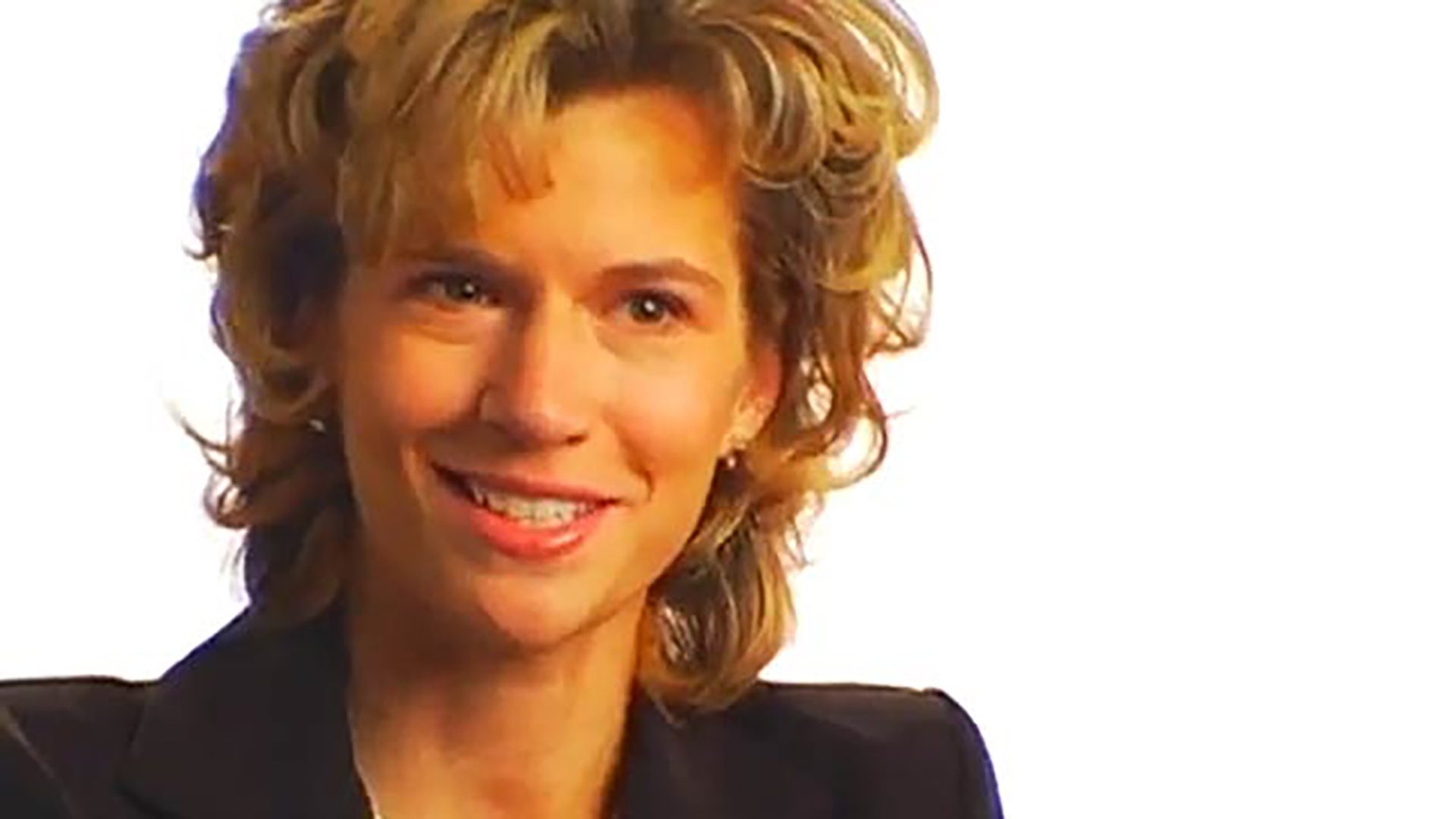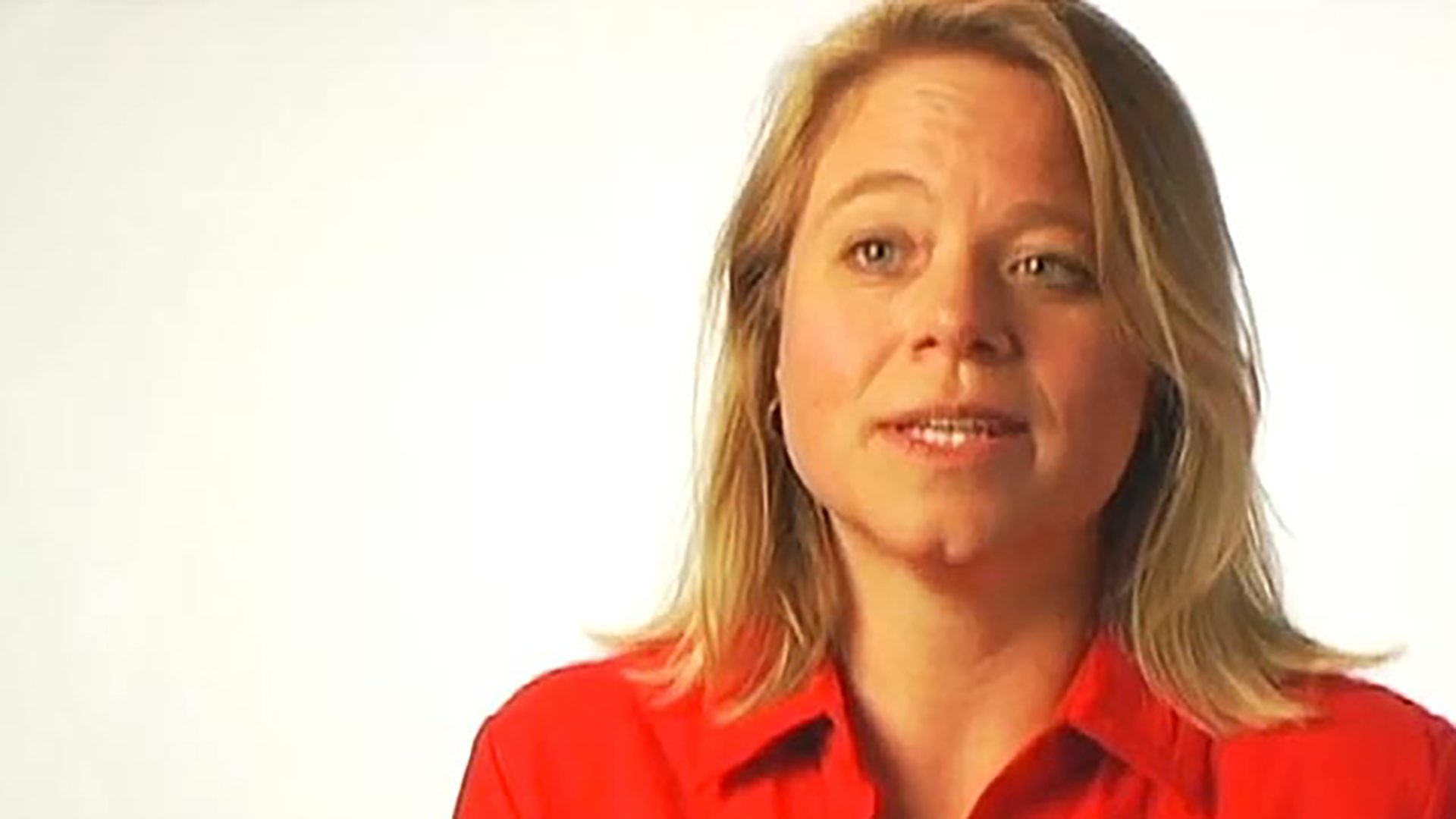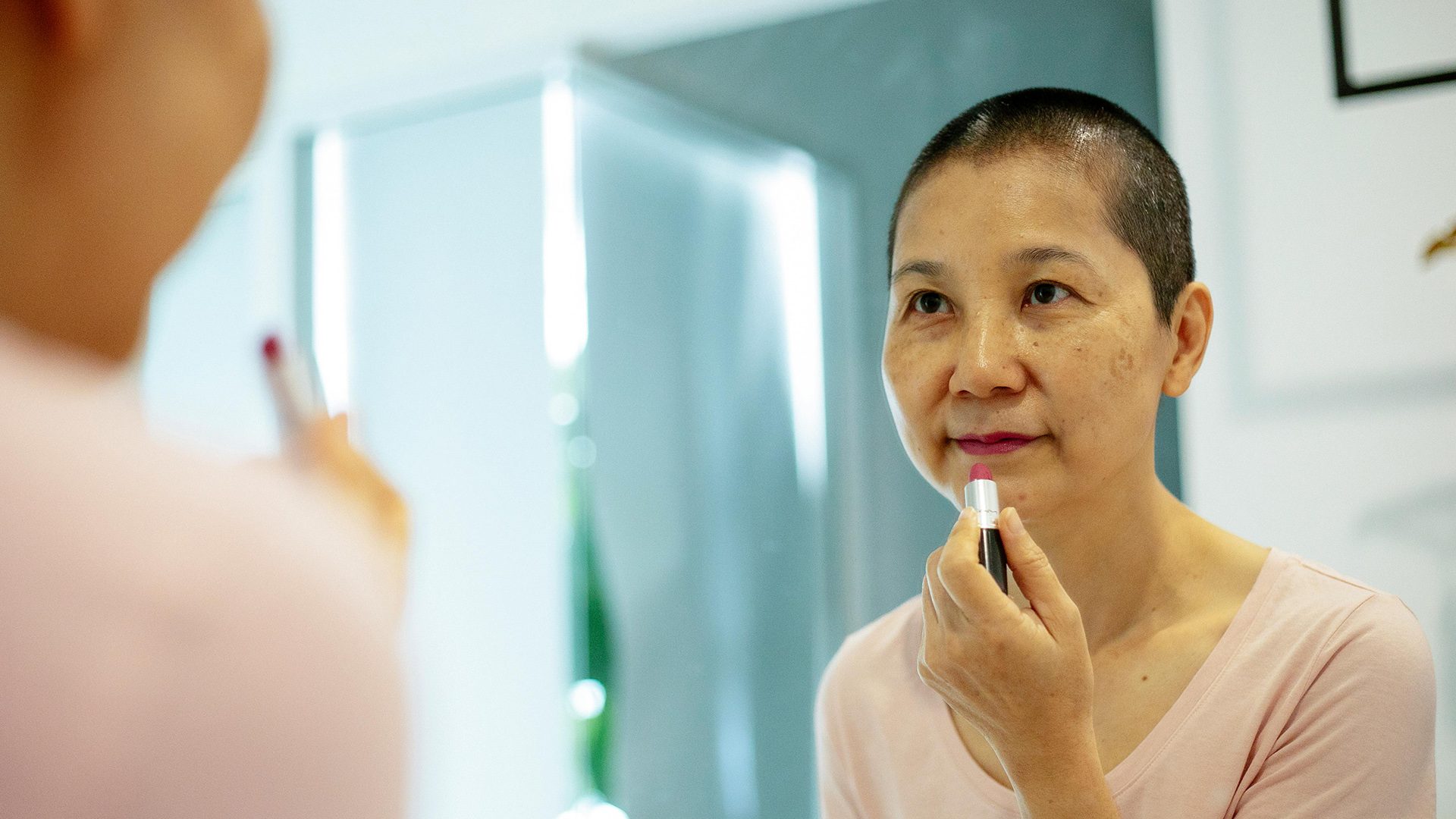Survivor Interview – Blanche T.
Blanche is a survivor of small cell of the cervix. She discusses accessing quality care from a small town, experiencing depression, and communicating with her husband.

I became a cancer survivor when I was diagnosed with small cell of the cervix with neuroendocrine features on May 20, 2003.
I was having some abnormal bleeding. The doctor said, “I think it might be an infection or it might be cancer. We’ll wait for the results to come back.” I was 25 years old and healthy as a horse. I thought, “There ain’t nothing to worry about.” She calls me a week later. There’s a box of tissues sitting there when I walk in the room. The doctor handed me a piece of paper and says, “This is what it is. It’s so rare; it’s not even in my textbooks. I can’t really tell you anything about it. You’re going to have to go through radiation and chemotherapy. I want you to go up to Anchorage as soon as possible to meet with the doctors and start your chemo.”
I was born in Ketchikan, Alaska. It’s a relatively small town. We have a great Native Medical Center, but they don’t offer radiation anywhere in southeast Alaska. You have to go to Anchorage or Seattle. Considering I was covered in the Native healthcare system, they sent me to Anchorage. It’s hard being remote. Anytime something’s wrong, I have to fly to Anchorage; if it’s semi-serious, they can treat it in Ketchikan.
The first chemo was easy. I got my first three days of chemo, carboplatin and VP-16, and then went off to Vegas and got married. I couldn’t walk around as much, so I didn’t. I noticed the effects right there. But I was still feeling fine. I never got sick. The appetite went downhill pretty quick and same with the sense of smell. It was like instantly somebody turned them off.
I got to have a three-week break, went home, worked some, and got in touch with family. And then, “We want you to come to Anchorage. You’re gonna have to stay up here for radiation.” I wasn’t keen on the idea of having to move. I own my own business. I couldn’t work, which was devastating for me because I’m somebody who likes to work sixty hours a week nonstop. I’m always going a hundred miles an hour. I had a complete stop of all of that.
My husband and I put our truck on the ferry, and we drove to Anchorage and got me situated. My cousin, fortunately, lives there. I got to live with her and her husband. That was my home for the next few months, while I went through radiation and chemotherapy.
I was severely depressed when I had to move to Anchorage. My husband was here for about the first two weeks and he left. He had to fly home to go back to work. I lost it. I broke down. I sat in the car and just bawled. I almost ran after him, and chased him down, and begged him not to leave me. It was so hard letting go.
Anytime I talked to somebody from home, I would just lose it. I’d be bawling. My mom was planning on coming next. My cousin was still with me, so that way there would still be somebody with me because I was home all day. I had nothing to do, and I was bored out of my mind. Now that I look back on it, I was actually really depressed. I should’ve been on an antidepressant. I didn’t realize it.
My mom came up to be with me for about a week-and-a-half. She left, and my blood counts got so low, I couldn’t be treated. I got to go home for a week and then came back. The counts were still too low to be treated. I went home for another week. Being home, I was fine. It helped a lot. And then coming back, I got really, really depressed. I didn’t even recognize it. Never been depressed like that before in my life. I started taking the antidepressants about two months after I quit my chemo.
The chemotherapy has a tendency to make you constipated. Then the radiation has a tendency to give you the opposite, diarrhea. It was a Catch-22 because there were days when I couldn’t get radiation because of my blood counts. So I’d be strictly on chemo and wouldn’t go to the bathroom for four or five days. They give you the stool softeners and tell you, “Drink lots of water.” You can’t drink a lot of water because you don’t feel like it. You don’t feel like doing anything. Then you get some radiation and that would kick in. So you’re on the Imodium-AD to help plug you up.
From the radiation, I developed fissures. That’s where the muscle tears and that was probably the most excruciating thing I’ve ever had in my life. Those are side effects they never told me would probably occur. I had to discover that one on my own. It really hurt to go to the bathroom. Eventually, after radiation took its toll, it was fine for probably the first three weeks. I was like, “This is no problem.” Finally, it hit me like a ton of bricks. All I want to do is be able to go to the bathroom normally and not feel any pain. A year after, I’m still not quite normal as I’d like to be.
Since I had such extensive radiation and implant radiation, it’s made me unable to have children. At first, it was devastating because I was just getting married. The thought of not having kids and being 25 really struck me hard. I didn’t want to cheat my husband out of having children with me. But I’ve come to accept it, and if it’s something that does happen, it will happen. That would be great. If it’s something that doesn’t, I’m never opposed to adopting or helping other children.
Going through cancer was a good learning process. I’ve always taken life for granted. I’ve never really considered death. When I got diagnosed with cancer, all I thought about was death. I prayed to fight and not go down that route. It was an eye-opener. It made me realize how many people actually love me and how many people care about me. They want me. I was scared to death of losing my husband and having my husband lose me. He’s 35, and he’d never found anybody and then he finds me, and it was really hard. I appreciate every single day, every breath I take. I make sure I make the most of it. Just after realizing how fast it can go away.
I think it was extremely hard on my husband. He had side effects from it that I didn’t recognize. It was always centered around me, because I was the sick one, but I don’t think we ever focused on him. That was the downfall later on in our relationship. The rate of couples getting married and with an illness and surviving is not very good. I can understand why. We’ve had our problems and our difficulties, and we can work through anything. We worked through cancer.
Livestrong means Lance. When I first got diagnosed, someone handed me his book and I was like, “Oh. Okay. A book on a guy who gets cancer. Whatever.” I took it to Anchorage with me, and I started reading it. I was just like, “Wow. This sounds like me.” He was up against all odds. I read the book, and I was really taken by it. I handed my husband the book. I said, “You need to read this. It’s going to help you understand what I’m going through.” He did and it taught him a lot. It taught me a lot. It inspired me. I’ve never had anybody in my life inspire me the way Lance Armstrong has. Just the way he has come back and done what he’s done.
I wake up every day and try to make the best of my day and know that I have fought for my life in every aspect possible, and never to take it for granted, and to help those who need it also.
My name is Blanche Thomas. I’m a one-and-a-half-year cancer survivor of small cell of the cervix.

